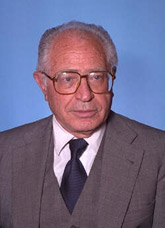Antonio Maccanico facts for kids
Quick facts for kids
Antonio Maccanico
|
|
|---|---|
 |
|
| Minister for Institutional Reforms | |
| In office 21 June 1999 – 11 June 2001 |
|
| Prime Minister | Massimo D'Alema Giuliano Amato |
| Preceded by | Giuliano Amato |
| Succeeded by | Umberto Bossi |
| Minister of Post and Communications | |
| In office 17 May 1996 – 21 October 1998 |
|
| Prime Minister | Romano Prodi |
| Preceded by | Giovanni Motzo |
| Succeeded by | Salvatore Cardinale |
| Minister of Regional Affairs | |
| In office 13 April 1988 – 13 April 1991 |
|
| Prime Minister | Ciriaco De Mita Giulio Andreotti |
| Preceded by | Aristide Gunnella |
| Succeeded by | Francesco D'Onofrio |
| Member of the Senate of the Republic | |
| In office 23 April 1992 – 14 April 1994 |
|
| In office 28 April 2006 – 28 April 2008 |
|
| Member of the Chamber of Deputies | |
| In office 9 May 1996 – 27 April 2006 |
|
| Personal details | |
| Born | 4 August 1924 Avellino, Italy |
| Died | 23 April 2013 (aged 88) Rome, Italy |
| Political party | |
| Alma mater | Pisa University |
Antonio Maccanico (born 4 August 1924 – died 23 April 2013) was an important Italian politician and expert in law. He held many different jobs in the Italian government. He was the main secretary for the Italian President at the Quirinal Palace for many years. He also served as a minister several times.
Contents
Early Life and Education
Antonio Maccanico was born in Avellino, Italy, on 4 August 1924. He went to the University of Pisa and finished his law degree in 1946.
Political Career
Maccanico started his career in June 1947 at the Chamber of Deputies. This is one of the two houses of the Italian Parliament. He worked in different groups within the Parliament.
He was first a member of the Action Party. Later, he joined the Italian Communist Party. However, he left this party in 1956 after the Soviet invasion of Hungary. This event caused many people to leave the Communist Party.
In 1962, Maccanico became the head of the law office for the Ministry of the Budget. He then returned to the Chamber of Deputies. In 1972, he became the Deputy General Secretary. Then, in 1976, he became the General Secretary of the Chamber of Deputies. This was a very important role. He also represented Italy in a group that helped prepare for direct elections to the European Parliament.
Working with Presidents
During the 1970s and 1980s, Maccanico worked for nine years as the main secretary for two Italian presidents: Sandro Pertini and Francesco Cossiga. This meant he helped them with their daily work and important decisions.
Banking and Ministerial Roles
From 1987 to 1988, Maccanico was the president of Mediobanca, a big Italian investment bank.
On 13 April 1988, he became the Minister for Regional Affairs and Institutional Problems. He held this job until 1991. In this role, he worked on issues related to different regions of Italy.
In 1992, he was elected as a member of the Senate of the Republic. This is the other house of the Italian Parliament. He served as a Senator until 1994.
Attempt to Form a Government
In 1996, the Prime Minister resigned. Antonio Maccanico was asked to try and form a new government. He believed that all political parties should agree on important changes before a new government was made. However, he could not get enough support from the different parties. Because of this, he gave up trying to form a government on 14 February 1996.
Minister of Communications
After this, Maccanico was elected as a deputy in the Chamber of Deputies in April 1996. On 18 May 1996, he became the Minister of Post and Communications. In this role, he helped create a very important law. This law, called Law no. 249 of 1997, set up Italy's communications authority. It is often called the Maccanico Law. He served as minister until 1998.
In 1999, he became the Minister for Institutional Reforms. He continued in this role until 2001.
Later Political Life
In 2001, Maccanico was again elected to the Chamber of Deputies. He also helped bring together different political groups to form a new party called The Daisy.
In 2006, he was elected to the Italian Parliament for the fourth time. During this time, he worked on a rule called the Lodo Maccanico. This rule aimed to pause ongoing trials for the five highest officials in the state. However, the rule was changed by other politicians and became known as the Lodo Schifani.
In 2007, Maccanico talked about how Italy's political system had changed. He thought that the new system, which allowed for different governments to take turns ruling, brought more stability. He did not run for re-election in 2008.
Death and Legacy
Antonio Maccanico passed away in Rome on 23 April 2013, at the age of 88. In 2014, his diaries were published. They were called Con Pertini al Quirinale. Diari 1978–1985 and shared his experiences working with President Pertini.
 | Bayard Rustin |
 | Jeannette Carter |
 | Jeremiah A. Brown |

